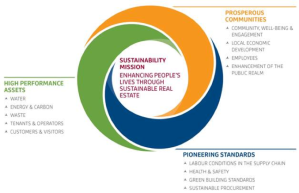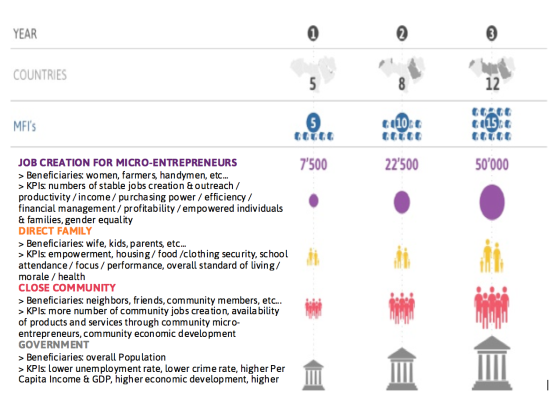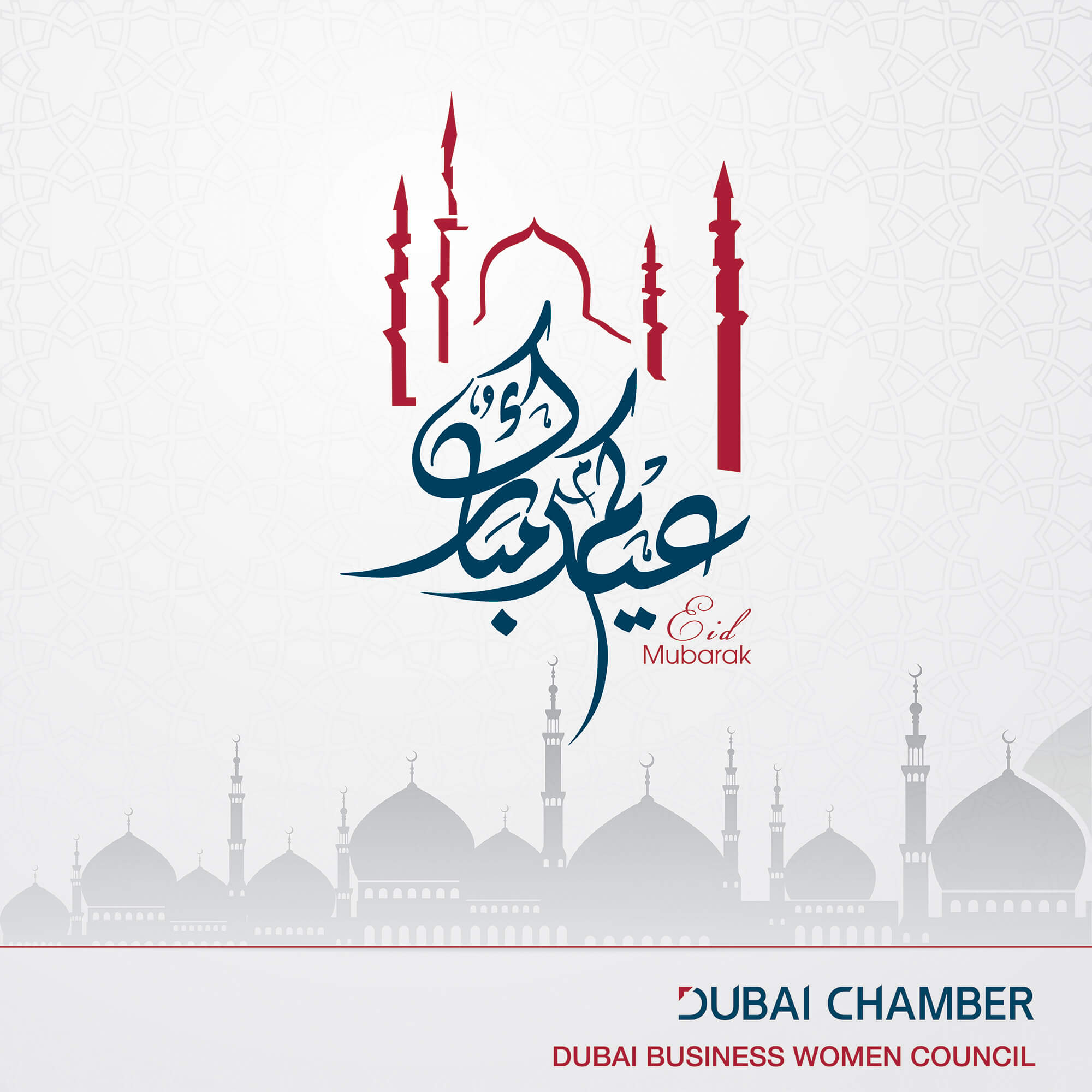Corporate Social Responsibility is a hard-edged business decision. Not because it is a nice thing to do or because people are forcing us to do it but because it is good for our business
– Niall Fitzerald, Former CEO, Unilever
In a world of growing complexity, challenges facing corporations are naturally mounting further. To address today’s challenges, Corporate Social Responsibility (CSR) is now a core part of future business models. Yet engaging in CSR is just half the battle. How will we measure impact that can scale? In this paper, we highlight measurements metrics applied by “global corporations” via a stakeholder-based approach and the adoption of these metrics in MENA based companies.
The importance of CSR metrics
The social impact of a CSR initiative can only be acknowledged with a robust impact measurement process. How would one know if a company’s education program is actually helping youth in the community if there is nothing to quantify the results? Results are a key factor to engage stakeholders and ensure community endorsement. Once stakeholders are identified and a goal is set to improve their current condition, the second element of impact measurement is to record and measure impact based on indicators. The table highlights an example of Stakeholders Metrics:
| Audience for CSR | Goal Hierarchy | Effectiveness Metrics |
| Society | Educated, Healthy, Wealthy, Happy, Stable,Cohesive Community. | Quality of Life Indicators: Physiological (Health), Economic, Educational, Social, Psychological.Examples: Percentage of population impacted; Life expectancy; Literacy rates; Income/nutrition p.c.; Disease Incidence rates; Birth/ Death rate by age. |
| Environment | Sustainable. | Sustainability; Improvement in indices; Pollution and toxicity levels (water, air, other). |
| Regulators,Auditors, NGOs | Ensuring compliance with existingregulations; Identifying new regulations to keep consumer welfare interests in line with corporate profitability goals. | Credit from regulators; Inclusion in CSR indices. |
| Media | Providing accurate, timely, and newsworthy information to the public. | Quantity and quality of press impact. |
| Financial Markets | Stability, Growth, and Profitability. | Rates of Return, Volatility, turnover, and liquidity over time. |
| Economy | Stability, Growth, and Profitability. | GDP/ GNP, per capita and overall; Debt ratios, foreign exchange reserves. |
What is happening in MENA?
While companies in developed markets have an obligation to an established network of regulators, stakeholders and the general public, companies within developing markets like that of MENA are left with their own accountability when measuring CSR. Thus the key question to ask is what are the objectives of CSR initiatives within MENA based companies, and how do they measure their impact despite an “unestablished” accountability ecosystem? The following are perspectives from leading companies in the area on the issue we asked:
Are CSR initiatives related to a/ Societal, b/ Environmental sustainability, c/ Regulator/Auditors, d/ Press and Media impact, e/ Financial and/or Economic metrics?
Aramex: Raji Hattar, Chief Sustainability Officer told us “At Aramex, we generally don’t refer to our activities as CSR, since we view our social and environmental activities as part of our sustainable business operations. As much as possible, we aim to contribute positively to the sustainable development and community empowerment of the areas we operate in by looking at initiatives that fall under one of our six sustainability pillars: Community Empowerment, Youth Education and Empowerment, Entrepreneurship, Sports, Emergency Relief, Our Environmental Commitment. Since sustainability becomes a critical part of a company’s daily operations and corporate culture, it adds value to the overall business, by allowing us to improve our efficiency, identify and mitigate risks, while also measuring and managing our environmental footprint. Sustainability extends towards the communities we operate in, in that we invest in building the local capacity, support entrepreneurs and SMEs, youth education and employability, all of which have direct and indirect socioeconomic benefits. Since 2006 we have been reporting on our sustainability performance. In 2010, we were the first company in the region to report on our carbon emissions. We continue this trend, making sure to always report on how we comply and follow the highest international standards, for example, in 2013, our report was one of the first GRI G4 reports to be published not just locally but internationally. We also make sure our report is audited and assured by a third party and that in writing this report and planning our sustainability programs we fully engage with our stakeholders.”
Ooredoo: Fatima Sultan Al Kuwari, Director Community & Public Relations told us “Ooredoo sponsors and supports a host of events and programmes aimed to promote human growth across Qatar with main CSR goals focused on five key pillars: Education, Healthcare, Environmental issues, Social Welfare initiatives and Sports. Working with our customers, these CSR activities are carried out in the spirit of partnership with the local community, and to enrich people’s lives. Regular CSR campaigns include #OoredooWeekends which has promoted healthy living by offering free refreshments for runners in Doha, opportunities for underprivileged children to take part in football, ice skating and recreational events, and offering free food for workers in Qatar’s industrial areas. Other initiatives include an annual charity auction of Easy-to-Remember Mobile numbers, sponsorship of sporting events throughout Qatar, and the recent QR 30 million donation to build the Qatar Cancer Society’s new educational facility. All of Ooredoo’s CSR initiatives are measured by a “triple P” approach, where people and the planet are valued as highly as profit. By maintaining this approach, which measures each initiative by its merits, Ooredoo aims to have a balanced CSR portfolio.”
Unilver: Arjit Ghose, Managing Director told us “Our products touch the lives of two billion consumers every day. They make small but important differences to the quality of people’s everyday lives. We aim to double the size of our business while reducing our environmental footprint and increasing our positive social impact. This growth will create jobs and income for all those whose livelihoods are linked to our success – our employees, our suppliers, our customers, our investors and hundreds of thousands of farmers around the world. We have developed new ways of doing business which will increase the positive social benefits arising from Unilever’s activities while at the same time reducing our environmental impact. We want to be a sustainable business in every sense of the word. The daily act of making and selling consumer goods drives economic, environmental and social progress. There are billions of people around the world who deserve a better quality of life that everyday products like soap, shampoo and tea can provide. For this we have developed our roadmap, the Unilever Sustainable Living Plan. The Unilever Sustainable Living Plan in MENA consists of three main pillars, including improving the health and wellbeing of 50 million people, halving the environmental impact of the making and use our products, and enhancing the livelihoods of thousands of people connected to our value chain.”
Majid Al Futtaim Properties: Ibrahim Al Zubi, Head of Sustainability told us “At Majid Al Futtaim Properties we want to lead by example by applying international best practice across our real estate and hospitality portfolio. In doing this, we hope to transform the economic and social development of the region. At the heart of this is our sustainability mission to enhance people’s lives through sustainable real estate. Practically we want to develop and manage better buildings that are highly environmentally efficient and that will deliver social and economic benefits to our communities, customers and supply chain. By embedding sustainability in our business, we will increase the value of our brand, boost long term profitability, create new business opportunities and maintain our talented workforce. We are very proud of the progress we have made since we launched the first phase of our sustainability strategy back in 2010. But we know we have much more to do if we are to achieve our ambitious goal of becoming a sustainability pioneer in the Middle East and North Africa and of transforming the economic and social development of the region. With this in mind, in 2013, we conducted an in-depth materiality review of our sustainability work through consulting our stakeholders, reviewing country risks, looking at what our peers do on sustainability, and isolating where opportunities exist to deliver business value through innovation. Completing this process allowed us to reflect on progress to date, to refine our priorities, and to develop an ambitious five-year sustainability strategy containing a set of targets to deliver on our new sustainability mission of enhancing people’s lives through sustainable real estate. The new strategy is an important step in our rapid evolution, and reflects the philosophies of our new brand and CEO. We will deliver it by developing and managing high performance assets that support prosperous communities. In doing this, we will set and deliver on pioneering standards across our business operations.”

From our specimen companies, we could see how the impact measurement approach is tightly related to societal, environmental and economic metrics, and how companies are developing their own measurement and assessment of their strategies.

This is the market discussion on the matter and Pi Slice is also becoming the platform for providing measurable impact metrics to company CSR initiatives in the region. Pi Slice offers an ideal solution to companies to engage their employees and their audience at large, and make CSR actions visible online, interactive and tangible while measuring the impact. The figure below outlines the different stakeholders and sub-stakeholders impacted by a Company – Pi Slice campaign, and how a company can further scale its impact over time.
Companies are jumping onboard due to Pi Slice’s ability to showcase impact. Companies like Property Finder, a leading web based real estate portal in MENA, voted #2 SME company in the UAE in 2013, chose to develop with Pi Slice its Corporate Social Responsibility strategy, understanding today the value of impact based CSR initiatives.
The Future of CSR Measurement in MENA
While the movement is already underway to embed CSR into core business models of the future in many corporations, stakeholders will ultimately recognize companies that are true models for social good based on measurable results. In the end, the purpose of Social Responsibility along the impact created is inspiring others to be socially responsible and accountable on all levels from the individual to the corporate. And when we start as a collective acknowledging the efforts that some model companies are leading, maybe a chain reaction can start happening inspiring individuals, small companies and big enterprises to lead the way in their own social good efforts.
Follow this link to read more Click Here


